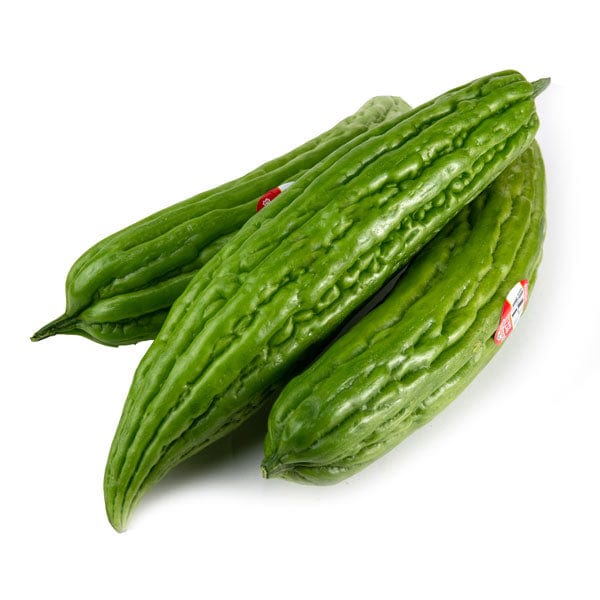Bitter melon is a popular vegetable in many cultures and has long been used for its medicinal properties. It has been historically used as a remedy for a variety of ailments, including staphylococcus aureus (S. aureus) infections.
We will discuss the potential benefits of bitter melon for treating S. aureus and the best ways to use it for treating this bacterial infection.
What is bitter melon?
Bitter melon is a plant that has traditionally been used as a medicinal food in various medical systems. It is known to be nutrient-dense and has been used to treat a variety of ailments.
Bitter melon contains a wide range of bioactive compounds, including alkaloids, polypeptides, vitamins, and minerals.
Bitter melon contains two types of saponins: Oleanane and Cucurbitane-type triterpenoids.
These compounds have been discovered to have a variety of health benefits, including the reduction of inflammation, improvement of heart health, reduction of blood sugar levels, and even the potential treatment of cancer.
Bitter melon is a valuable plant in traditional medicine and is known for its various health benefits.
Momordica charantia medicinal uses
Bitter melon has bioactive compounds that have been linked to a range of pharmacological effects such as:
- Antidiabetic
- Anticancer
- Antiviral
- Anti-inflammatory
- Analgesic
- Hypolipidemic
- Hypocholesterolemic
The mechanism of action of these effects is still being studied, but it is believed that the bioactive compounds in bitter melon may act by regulating enzymes, receptors, and signaling pathways in the body.
This study states that bitter melon has over 225 different medicinal constituents that may act either separately or together to exert their medicinal effects.
One such is charantin, an insulin-like peptide, and alkaloid-like extract which possesses hypoglycemic properties with several mechanisms to control and treat diabetes mellitus.
While the available clinical data on the efficacy of bitter melon for treating diabetes mellitus are often flawed.
Another study evaluated the effect of Momordica charantia, methanol extract of Momordica charantia (MCME) on cell survival in four different types of human cancer cells. The cells were exposed to MCME for 24 hours at varying concentrations.
Results showed that MCME had a similar cytotoxic effect on all cancer cell lines tested, with a minor difference in IC50.
Approximately 50% of cancer cells survived after exposure for 24 hours in each line, suggesting similar susceptibility to MCME.
Another study highlighted how geraniin a constituent of bitter melon significantly reduced the production of secreted HBeAg and cccDNA for the treatment of hepatitis.

How to use bitter melon to treat staphylococcus aureus?
This study claims that bitter melon has 5-a-stigmasta-7, 25-dien-3-b-ol, elasterol, and lanosterol which may be responsible for its antibacterial activity against Staphylococcus and other bacteria.
However, there are not enough studies to back the claim that bitter melon can treat or cure Staphylococcus infections.
But generally, bitter melon is either taken as a juice, tea, or capsule.
How do you treat an infection with bitter melon?
If you are interested in using bitter melon as a complementary therapy, there are a few ways to incorporate it into your diet:
Juice: Bitter melon can be juiced and consumed on an empty stomach every day to help boost the immune system and fight infections.
Tea: Brew dried bitter melon slices into a tea and drink on a daily basis.
Capsules or supplements: Bitter melon supplements are available in capsule or tablet form and should be taken as directed by a healthcare professional.
What Next?
It is important to note that while bitter melon has many potential health benefits, it should not be used as a sole or primary treatment for any medical condition, and you should always consult with a healthcare professional before using any herbal or natural remedies.
FAQ
Is bitter gourd an antibiotic?
A Harvard study claims that bitter gourd has antibacterial properties against Aeromonas hydrophila but the concentrations used in the study weren’t effective enough.
Can you boil bitter melon and drink the water?
The known methods of preparing bitter melon do not involve boiling. They are, juicing, and tea (preferably soaking in water).
Which diseases are cured by bitter gourd leaves?
There is little scientific evidence to support the use of bitter gourd leaves as a treatment for any disease.
Bitter gourd leaves, on the other hand, have traditionally been used in some cultures for their potential health benefits, such as lowering blood sugar levels in diabetics and improving liver function.
Some preliminary research has also suggested that bitter gourd leaves may have anti-inflammatory and antioxidant properties that could be beneficial for a variety of health conditions.
Does bitter melon boost the immune system?
The bitter melon extract has been shown in some studies to stimulate the immune system by increasing the production of cytokines and activating immune cells such as T cells and natural killer cells.
Can you drink bitter melon juice every day?
It may not be good to drink too much of this juice
